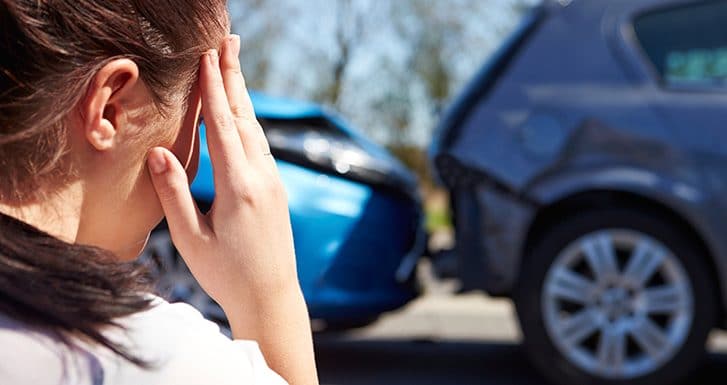
Common Causes of Rear-End Crashes in Indianapolis

Rear-end crashes are common throughout Indianapolis, especially during heavy periods of traffic. Crashes involving rear-end collisions are often referred to as “fender benders,” which makes them sound like minor car accidents. However, rear-end crashes can cause traumatic injuries and life-threatening conditions. Some victims of rear-end accidents have surgery and endure months of painful therapy and rehabilitation. The damages and losses caused by a rear-end accident can be substantial.
What are the Common Causes of Rear-End Crashes?
One of the most common causes of rear-end crashes is distracted driving. Drivers do not pay attention to the road ahead and fail to stop in time to avoid a collision. Texting, talking on a cell phone, reading, eating, grooming, reaching for objects, children, and passengers are some of the common distractions that lead to rear-end accidents.
In addition to distracted driving, other common causes of rear-end collisions include:
- Following too closely
- Speeding
- Weather conditions
- Road rage
- Driving while impaired by drugs or alcohol
- Drowsy or fatigued driving
- Heavy traffic and traffic jams
- Mechanical failure and defective products
In most cases, the driver in the rear is blamed for causing the crash. If you were injured in a rear-end crash, you might be entitled to compensation for your damages. Contact our PBAR legal team for a free case review to discuss your legal options for recovering money for your injuries and losses.
What Injuries are Common in Rear-End Collisions?
Whiplash
Whiplash and other neck and back injuries are common in crashes involving rear-end impacts. When another vehicle strikes your vehicle from behind, the force can cause your head to move back and forth violently. The sudden, violent movement can cause traumatic damage to the soft tissues in the neck. While some cases of whiplash heal with time, rest, and over-the-counter pain medications, some cases of whiplash cause long-term impairments and chronic pain. Seek immediate medical care if you experience symptoms of whiplash or if your symptoms become worse.
Traumatic Brain Injury (TBI)
Rear-end crashes can also cause head and brain injuries, including traumatic brain injuries (TBIs). When the head is slammed forwarded and backward, the brain can “bounce” around striking the skull in one or more places. In addition, a victim may slam his or her head into the steering wheel, window, or headrest. Any of these actions may cause severe damage to the brain.
However, symptoms of brain injuries may not be immediately apparent following a crash. Like whiplash, if you experience any symptoms of brain injuries, you should seek immediate medical attention. Some brain injuries could result in permanent impairments and life-threatening conditions.
Broken Bones
Like all other car accidents, broken bones and fractures are also common injuries in a rear-end crash. The ribcage, feet, hands, spine, and skull are common areas of the body in which breaks can occur during a rear-end collision. Fractures and broken bones are typically easily identifiable and treatable. However, victims may need surgery and months of physical therapy to recover from injuries.
Contact an Indianapolis Rear-End Crash Attorney
Rear-end crashes cause significant injuries in some cases. The financial and noneconomic damages caused by these car accidents can be significant. Poynter & Bucheri helps accident victims recover compensation for their injuries, losses, and damages.
Contact our PBAR legal team by calling 1-800-265-9881 or (317) 780-8000 to schedule a free consultation with an Indianapolis car accident lawyer.
